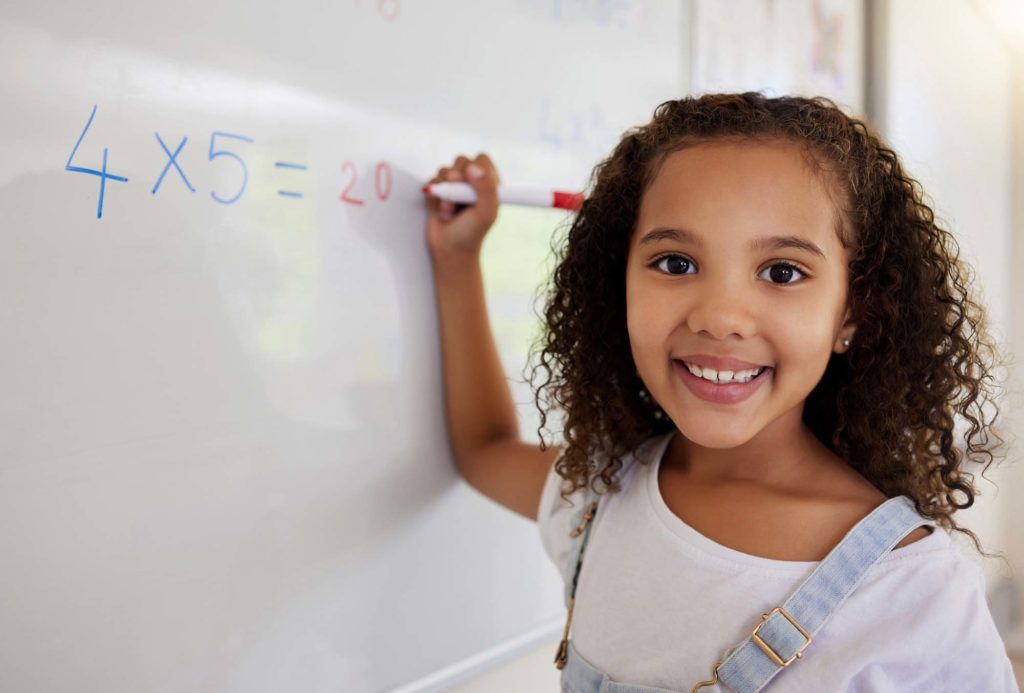Myth of Male “Superior Math Ability” Hinders Female Students’ Math Performance

Increased exposure to peers who believe that boys are innately superior at math can erode girls’ mathematics performance over the course of the academic year, research in Psychological Science suggests.
“Gendered beliefs in intellectual abilities had both immediate and prolonged effects on female students’ academic performance and belief formation,” said Sherry Jueyu Wu (University of California, Los Angeles) in an interview with APS. “Whether we like it or not, this notion of inherent gender-based math ability commonly exists in the minds of many schoolchildren.”
Wu and colleague Xiqian Cai (Xiamen University) began by conducting a natural experiment in which they followed the math performance of 8,029 Chinese middle school students in grades seven and nine across one academic year.
At the beginning of the school year, students completed a survey about their gender-based math beliefs. These beliefs varied widely between classrooms, with anywhere from 13% to 91% of students in a class reporting that they believed boys’ math ability was innately better than that of girls. In China, the researchers noted, middle school students remain in the same class for all of their academic subjects, study hall, and outdoor activities, leading them to consistently interact with the same group of peers throughout the school day.
When Wu and Cai compared students’ performance on midterm exams, they found that although girls outperformed boys in math, English, and Chinese, girls’ math test scores decreased significantly as the proportion of their peers who believed boys were innately superior at math increased. Boys’ math test scores, on the other hand, improved as exposure to this peer belief increased.
The researchers also found that boys’ beliefs about gender differences in mathematical ability had a greater influence on girls’ performance than those of their female peers.
Finally, when a higher proportion of students within a classroom believed boys were better at math, girls became less likely to enroll in extracurricular mathematics courses and perceived themselves as receiving less attention and praise from their math teachers. Survey results also showed that, compared to boys, girls were more likely to regard math as difficult, feel more stressed about their parents’ academic expectations, and believe math was less related to their future careers.
“Our findings highlight how the prevalence of stereotypical beliefs in one’s ambient and peer environment, even when readily contradictable, can shape children’s beliefs and academic ability,” Wu and Cai wrote.
The researchers followed up on these findings with an experimental study of 547 Chinese undergraduate and graduate students. Students were invited to a laboratory at their university in groups of 19. There, the students watched one of two videos—either a stereotype-threat video that suggested men score better on math tests or a control video about human memory—and took a 20-minute test of their math and verbal skills. After finishing the initial test, they were given the option of completing 5 minutes of additional math or verbal questions.
In this case, male students’ performance on the math and verbal tests remained consistent regardless of which video they watched. On the other hand, the math performance of female students who watched the stereotype-threat video was 18% lower than the control group. They also reported having more distracting thoughts and putting less effort into the exam compared with women in the control group.
The videos did not, however, influence students’ decision to complete additional math or verbal testing.
“These findings highlight the importance of one’s ambient and peer environment on the propagation of gendered beliefs and their cumulative impact on intellectual abilities and psychological outcomes,” Wu and Cai wrote. “The more girls are exposed to peers who hold erroneous stereotypical beliefs on the innately superior math ability of boys, the worse they fare in math tests.”
In future research, Wu would like to uncover interventions that could be used to curb the peer transmission of gendered beliefs about mathematical ability and to change these beliefs before they spread.
Feedback on this article? Email [email protected] or login to comment. Interested in writing for us? Read our contributor guidelines.
Reference
Wu, S. J., & Cai, X. (2023). Adding up peer beliefs: Experimental and field evidence on the effect of peer influence on math performance. Psychological Science, 34(8), 851–862. https://doi.org/10.1177/09567976231180881





APS regularly opens certain online articles for discussion on our website. Effective February 2021, you must be a logged-in APS member to post comments. By posting a comment, you agree to our Community Guidelines and the display of your profile information, including your name and affiliation. Any opinions, findings, conclusions, or recommendations present in article comments are those of the writers and do not necessarily reflect the views of APS or the article’s author. For more information, please see our Community Guidelines.
Please login with your APS account to comment.